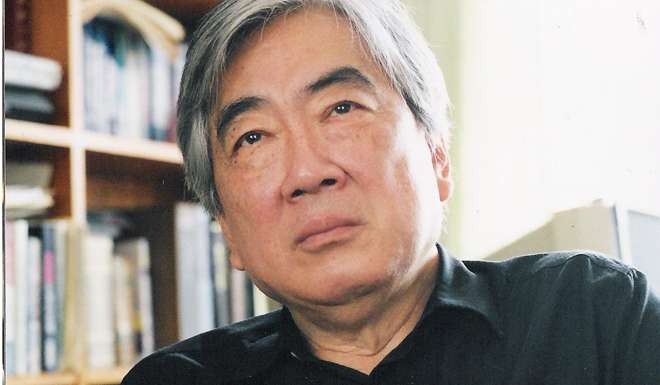Chen Ying-chen: a literary lion in search of one China
Taiwanese novelist and magazine founder chronicled the lives of the working class and promoted unification with the mainland

Friends, literary critics and politicians paid tribute on Wednesday to leftist Taiwanese writer and former political prisoner Chen Ying-chen, who died in Beijing on Tuesday after a long illness. He was 79.
Literary critic Yao Yi-wei said Chen’s work was “filled with messages of love” that also possessed a “deep melancholy, an eternal sadness that is as heavy as a mountain”.
Born in Hsinchu in northern Taiwan in 1937, Chen was known both as a novelist and the founder of political magazine Ren Jian, or Among the People.
Chen was a supporter of unification with the mainland and the idea of a unifying Chinese national identity. Unlike many other dissidents and political activists of his era, he was not part of Taiwan’s independence movement or a member of the pro-independence Democratic Progressive Party.
He became politically active in the late 1950s and was first arrested in 1968 by the then ruling Kuomintang for “leading pro-communist activities”, resulting in his imprisonment on Green Island off Taitung county until 1973.
Chen was arrested again six years later but released quickly after protests by a group of prominent activists and writers.
In 1985, he launched Ren Jian magazine, reporting on political oppression under the KMT’s martial law and the plight of the working class during the island’s industrialisation.
He famously debated writer and academic Chen Fang-ming on the differences between Taiwanese and Chinese literature in 2000.

In 2006, he left Taiwan for Beijing to take up a teaching position at Renmin University. But in September that year, he suffered two strokes and had been bedridden since.
He reportedly wanted to return to his hometown in Taiwan, but fears for his health prevented him making the long trip.
Chen wrote a series of novels exploring the lives of workers, farmers and grass-roots people exploited by the authorities and by capitalism.
{Chen’s work] sensitively reflects a restless time and a tumultuous society, depicting the hardships endured by multitudes of people, particularly intellectuals, in Taiwan
His best known works including My Brother Kang-hsiung, The Noodle Stand, The Generals, The Comedy of Tang Chien and Home Coming.
Since the 1980s, he has been viewed by many as “Taiwan’s greatest author”, according to Jeffrey Kinkley, a leading American sinologist.
Critic Yeh Shih-tao described Chen’s writing as “sensitively reflecting a restless time and a tumultuous society, depicting the hardships endured by multitudes of people, particularly intellectuals, in Taiwan.”
Friend and writer Chi Chi said Chen’s later works leaned toward “Chinese unification” and criticised the impact of “American capitalism” on Taiwan, Central News Agency reported.
His brother, Chen Ying-ho, still lives in Taiwan and was informed of his death before it was made known to the general public, CNA said.